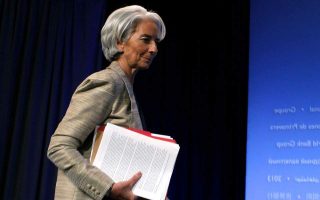New eurozone ‘coronabonds’ body might take three years to set up, says Regling

A new mechanism to enable the issuance of joint eurozone debt to counter economic fallout from the coronavirus epidemic – as recommended by nine European leaders – could take up to three years to set up, the head of the bloc’s bailout fund said.
However, common ‘coronabonds’ could in theory be issued immediately if the bloc’s existing funding institutions were used, European Stability Mechanism (ESM) head Klaus Regling told the Financial Times.
France, Italy, Spain and six other countries called last week for work on a common debt instrument issued by a European institution to cushion the effects of the pandemic, which is on course to trigger a global recession.
Germany and the Netherlands strongly opposed such a mechanism and the nine who supported it did not specify how it would work. Leaders gave the bloc’s finance ministers until April 9 to come up with ideas on supporting the economy.
Regling said the eurozone was already issuing common debt when the ESM was borrowing on the market to lend on to governments. The European Union could also borrow jointly through the European Commission, which raised money against the EU budget, and through the European Investment Bank, owned jointly by EU governments.
“If you use existing institutions… the EIB could do it immediately. The ESM is there. They can all issue mutualized European debt,” Regling said.
“…Of course, one can also create a new institution if that is what the member states want. It would take one two or three years, and member states have to come up with capital or guarantees, or assign future revenue.”
Eurozone finance ministers had suggested that governments use a precautionary credit line (ECCL) from the bailout fund worth up to 2 percent of GDP to fight the crisis, a move that would also pave the way for unlimited European Central Bank bond purchases if needed.
Leaders did not reject that suggestion last week, but did not clearly endorse it either.
Regling said that, to cover common short-term financing needs stemming from the outbreak, “I think the only way is to use existing institutions with existing instruments.”
To get an ECCL, a country has to submit to a European Commission analysis if its debt is sustainable, something that heavily indebted Italy is reluctant to do.
However, Regling said that, given the circumstances, conditions attached to such a credit line could be minimal. “There should also be a commitment to respect EU surveillance frameworks (but)… it would be no more than that,” he was quoted as saying. [Reuters]





